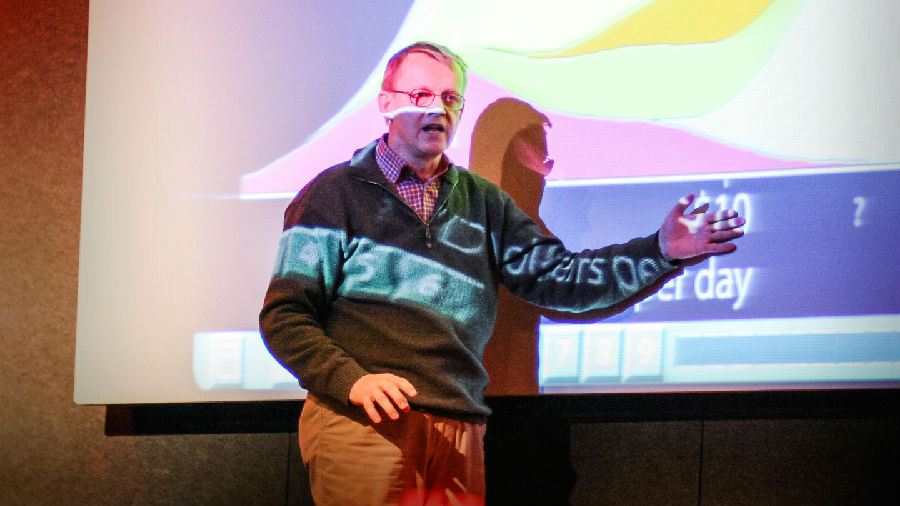About 10 years ago, I took on the task to teach global development to Swedish undergraduate students.
大约在十年前,我担当起给瑞典大学生讲授全球发展的任务。
That was after having spent about 20 years together with African institutions studying hunger in Africa,
之前的20年,我一直在非洲研究饥饿问题,
so I was sort of expected to know a little about the world.
所以大家以为我对世界有些了解。
And I started in our medical university, Karolinska Institute, an undergraduate course called Global Health.
在我们的卡罗林斯卡医学院,我开设了一门本科生课程,“全球健康”。
But when you get that opportunity, you get a little nervous.
刚开课的时候我还有些紧张。
I thought, these students coming to us actually have the highest grade you can get in Swedish college systems
因为来听课的都是瑞典大学的优等生,
so I thought, maybe they know everything I'm going to teach them about. So I did a pre-test when they came.
他们或许早已了解我准备教的内容。于是在第一堂课里,我作了一个小测试。

And one of the questions from which I learned a lot was this one:
其中有一道题让我受益匪浅。
"Which country has the highest child mortality of these five pairs?"
下列5对国家中,哪一个的儿童死亡率高于另一个?
I put them together, so that in each pair of country, one has twice the child mortality of the other.
我所选择的配对国家,都是一个的儿童死亡率是另一个的两倍。
And this means that it's much bigger a difference than the uncertainty of the data.
因为数据差距很大,因此数据本身的不确定性可以忽略不计。
I won't put you at a test here, but it's Turkey, which is highest there, Poland, Russia, Pakistan and South Africa.
今天我不会拿这来考大家,土耳其,波兰,俄罗斯,巴基斯坦和南非。
And these were the results of the Swedish students.
这是瑞典学生的测验结果。
I did it so I got the confidence interval, which is pretty narrow, and I got happy, of course: a 1.8 right answer out of five possible.
让我高兴的是,5题中平均答对的只有1.8题。
That means that there was a place for a professor of international health and for my course.
我这个教授还有这门课,因此都有了存在的必要。
But one late night, when I was compiling the report, I really realized my discovery.
但后来有天深夜,当我写总结报告的时候,我突然有了新的发现。
I have shown that Swedish top students know statistically significantly less about the world than the chimpanzees.
瑞典大学的优等生们对世界的了解,竟然还不如黑猩猩。












